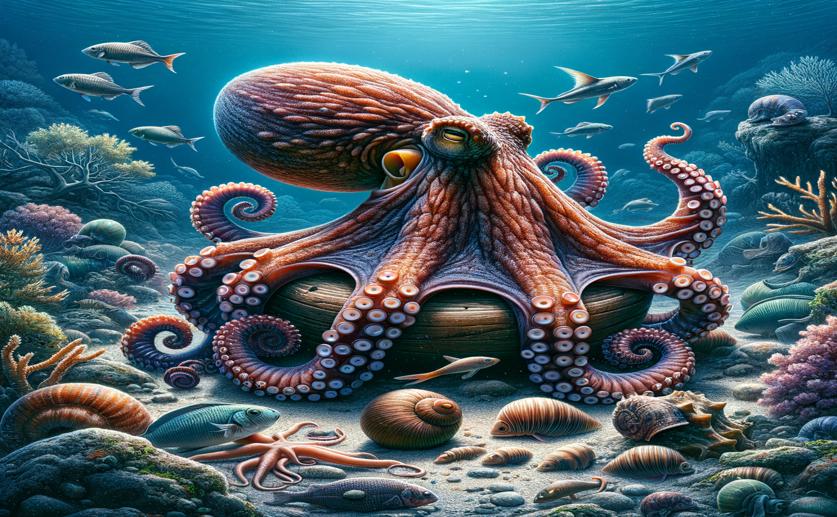
What Octopuses Eat When They Settle Down: Insights from DNA Analysis
Greg Howard
25th July, 2024

Image Source: Natural Science News, 2024
Key Findings
- The study focused on the diet of recently settled Octopus vulgaris in the Mediterranean
- Amphipods were the primary prey, found in all analyzed stomach contents
- As octopuses grow, their diet diversifies to include hydrozoans, decapod crustaceans, cephalopods, and bivalves
GeneticsAnimal ScienceMarine Biology
References
Main Study
1) Octopus diet during the settlement period using DNA metabarcoding
Published 24th July, 2024
https://doi.org/10.1007/s11160-024-09875-x
Related Studies
2) Biodiversity assessment of tropical shelf eukaryotic communities via pelagic eDNA metabarcoding.
3) Potentially handicapped but otherwise functional: Malformations in prey capture tools show no impacts on octopus life.
4) Predatory flying squids are detritivores during their early planktonic life.



 6th July, 2024 | Greg Howard
6th July, 2024 | Greg Howard